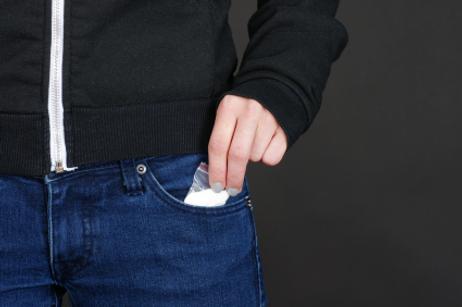Despite popular community and school programs that condemn the use and abuse of drugs, research and reports reveal that teen drug use is on the rise. As published by the National Institute on Drug Abuse (NIDA), researcher Neil Swan illuminates the many problems arising in teen behavior and drug usage habits. According to Swan’s report: “The percentage of America's 8th, 10th, and 12th graders who use marijuana continued to increase last year […] Students' use of several other categories of drugs also escalated, while anti-drug attitudes among teenagers deteriorated, the survey found.”
As the perceived harm of drugs dwindles, and as teens encounter drugs regularly, either in schools, the media, or their personal lives, experts fear that the harmful patterns of teen drug abuse will continue to escalate.
Teens and Drug Abuse
When Do Drug Habits Begin?
While drug abuse can begin at any age, recent studies reveal that middleand high school students engage in harmful drug abuse behaviors. According to the National Institute on Drug Abuse’s Monitoring the Future survey, prescription drug painkillers and inhalants are increasing among teens. For example, OxyCotin, a powerful narcotic, was used by 9.3% of 12th graders, 6.2% of 10th graders, and 2.5% of 8th graders in 2004 – all higher levels than in prior years.
What Inspires Harmful Drug Choices?
As drug use continues to present a problem among adolescents and teens, Dr. Alan I. Leshner, the director of NIDA, asserts that the increase in recent drug use results from many potential factors. On the surface, one can surmise that the rise in drug abuse may be due to teens’ dwindling fear of drugs, as they are perceived to be less harmful by teens today than in the past. As teens have a more casual misconception of drugs, perhaps they are more inclined to take risks by experimenting with illicit substances.
Adding to this, as Dr. Leshner points out, ‘
“These kids are getting the wrong signal […] Increasingly, they are viewing drug use as something acceptable. We must act decisively to remedy these backsliding attitudes among today's high school students.’”
Signs of Teenage Drug Abuse
According to reports from the Adolescent Substance Abuse Knowledge Base (ASAKB), if parents recognize specific changes in their child’s behavior, they should become more alert to the potential likelihood that their child may be using or experimenting with drugs. ASAKB states, “Parents who notice a shift from their child's normal patterns and behavior that cannot be attributed to the ordinary stresses of adolescence and changing level of independence should pay particular attention to their child's appearance, speech, and behavior.”
Changes in a teenager’s behavior as a result of drug use may manifest as symptoms such as:
- Change in school work, grades, and performance
- Teens may begin skipping school, sports events, practices, etc.
- Change in mood, disposition, and attitude
- Teens may drop out of previous teams, events, or groups
- Teens may adopt new friends/friendship groups while abandoning old groups
- Money and valuable items may be missing from your home
- Teens may exhibit a change in physical appearance, which can be evident in a teen’s change in clothing or their weight, size, or face
- Teens may appear less motivated or may even have outrageous outbursts of anger and/or frustration
- Teens may appear more thoughtless and forgetful, as they may also adopt new and unusual sleeping habits
- Teens may appear more depressed, anxious, or out of sorts
- Parents may sense a general feeling that their child is just “off” or that something seems wrong
How to Confront a Teen Who May be Using Drugs
As the Adolescent Substance Abuse Knowledge Base asserts, if parents are concerned about their child’s potential involvement with drugs, parents should feel confident in enforcing a new set of rules, conducts, and codes of behavior.
According to ASAKB, “Independence should not simply be allowed regardless of behavior but should be dependent upon living up to certain basic expectations. If your teen now refuses to do chores, misses curfew regularly, creates a chaotic and hostile environment in the home, and frequently appears to be depressed, agitated, or "sleepy," you should investigate further, maintain clear channels of communication, and set clear boundaries and rules.”
Oftentimes teens may exhibit new and strange behaviors due to personal, social, or emotional struggles in their lives; however, when parents encounter an “instinct” about their child’s potential involvement with drugs, parents should feel both validated and ethically bound to implement an intervention plan. Parental involvement can include contacting their child’s teachers, counselors, and school officials for additional support and insight if such cases occur.
Questions? Contact us on Facebook. @publicschoolreview















